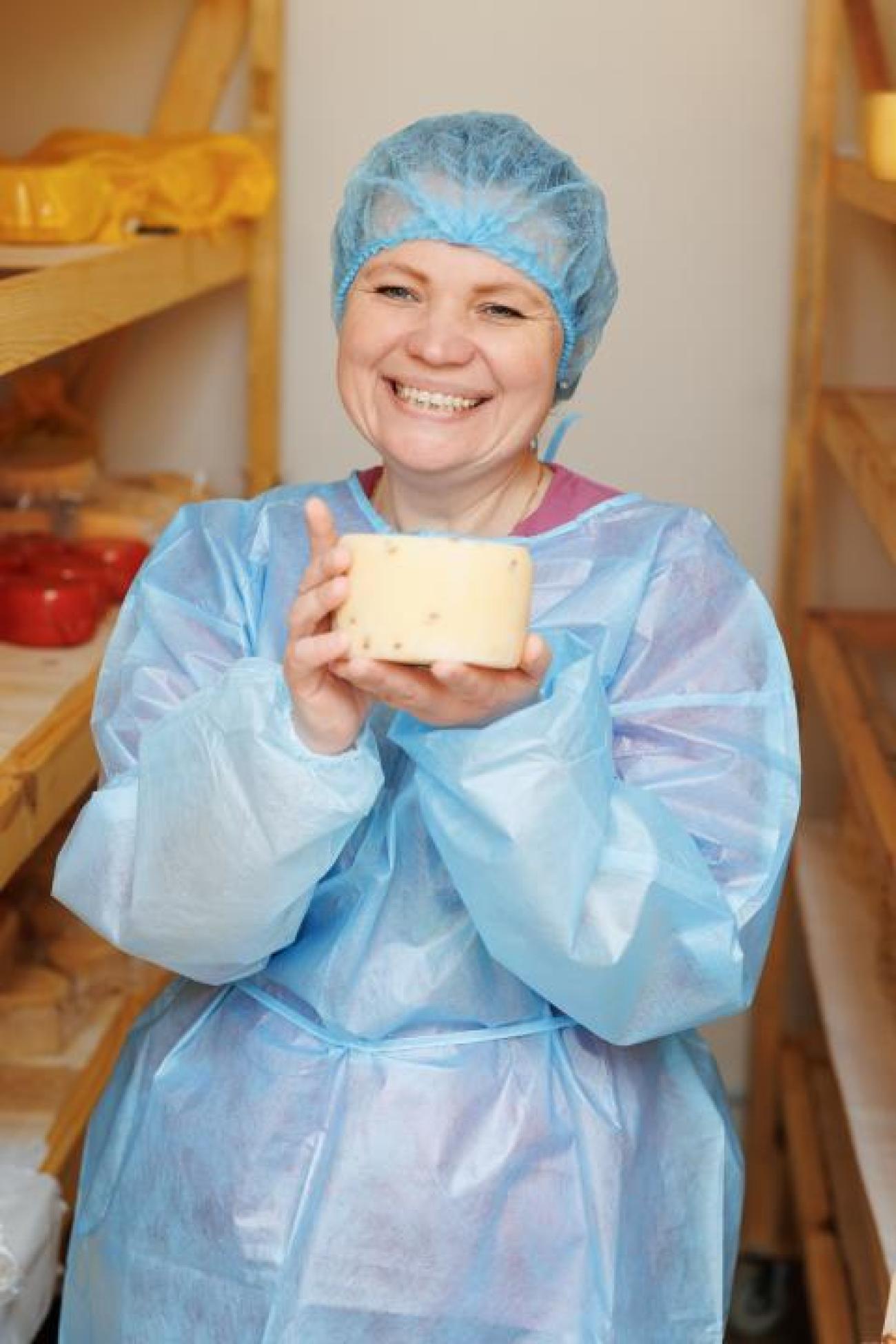Artisanal cheese or how taste sets the tone in a family business

Inspired by delicious food, the Cerneavschii family from the village of Gîsca, Transnistrian region has opened a workshop producing artisanal cheese.
Feodor and Olga Cerneavscaia returned to their hometown in 2011 because they couldn't deal with their homesickness and even the taste of the food wasn't "like home" either after nine years living abroad. Since then, in addition to their basic work, they've been looking for a family business idea. That's how the artisanal cheese-making workshop was born. The business benefits from support of the European Union, offered through the Confidence Building Measures Programme, implemented by UNDP.
For more than a year now, Saturday and Sunday have also been working days dedicated to the artisanal cheese workshop.
"There are two ways to have a healthy diet: either you earn a lot of money and you can afford it, or you prepare it by yourself. We chose the option of preparing it on our own and even making a profit out of it," mentions Olga Cerneavscaia.
The Cerneavschii family are self-confessed gourmets. "I'm an accountant, my husband makes PVC windows, we had nothing to do with food technology and at the beginning, we trained in the kitchen. After that we understood that this process completely took us over, because it's a very creative process," notes Olga.
Her accounting experience was a great help in crafting a business plan, which she submitted to the competition launched by the EU Confidence Building Measures Programme, implemented by UNDP.
With the support of the programme, Olga received milk processing equipment worth €15,000. This is how the boiler, mixer, cooling tank, moulds, and other necessary tools made their appearance in the production workshop.
Entrepreneurship with taste, or how to make cheese fit for sale!
"This is our very first cheese; it was produced on 30 or 31 May last year and will be a year old soon. This layer is not edible, it needs to be removed. We cut it few days ago and tasted it, its taste qualities are far from ideal," explains Olga.
For each batch of cheese, the Cerneavschii family buys around 500-550 kg of milk from a small farmers' association in the region. On cheese production day, Olga takes care of every step, the first one being a calculation on paper. After the milk is pasteurized, the ingredients are added with great care, at precise intervals and in a well-established proportion.
"In our production, we only use natural products because we didn't want to make one more type of cheese out of the dozens. We have quite a few authentic and natural cheeses on sale, which is why we only use natural ingredients, natural colourings, which we add in minimal quantities, just to get the colour of the cheese that consumers are used to."
Olga buys the other ingredients such as natural ferments, lipase, coagulants from Italy. From all the milk used, the family Cerneavschii produces about 50 kilograms of artisanal cheese.
"When we were experimenting, we got a very interesting cheese, it was even recognized as 'hard cheese'. It was very tasty and we got it absolutely by chance. Now I'm practising the production technology to replicate that cheese, because people really liked it."
From setting up the production workshop to getting the cheese into shop windows was a long and demanding process. But since January 2024, the workshop has been producing cheese 2-3 times a month and it has been reaching shops in Tighina (Bender) and, more recently, Tiraspol.
"In our production we focus on Italian caciotta cheese. What makes it good? Its maturing period is short, caciotta can be eaten after the first five days of fermentation and as time goes by, its taste intensifies."
The rich yet smooth taste combines wonderfully with the various ingredients, leaving plenty of room for creativity, which Olga loves.
To provide customers with more types of cheese, Olga kept experimenting. She tested fenugreek seeds in a small batch of cheese and the taste of the combination was far beyond expectations. The fenugreek seeds gave the cheese a nutty taste and the first consumers asked Olga to repeat the experience and put the new type of cheese on sale. The hard and paprika-flaked cheeses are now to be launched.




